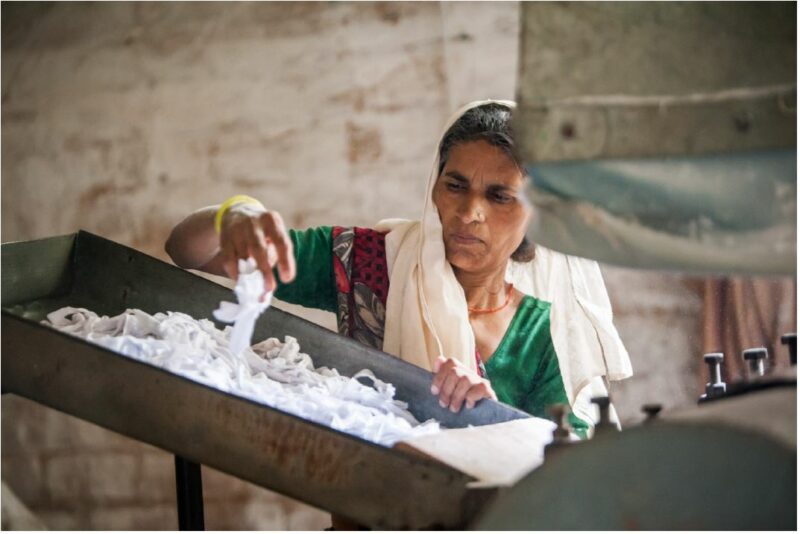8 tips to turbocharge the green transformation
The UN has some ambitious targets for human & environmental flourishing by 2030. But how can we make sure these targets aren't missed?

These days, it sometimes feels like the world is being pulled in fifteen different directions at once. But, in theory at least, there is a plan for where the world wants to go in the next few years - and it's one that almost every single government on Earth has signed up for.
The UN's Sustainable Development Goals, as this plan is commonly known, are arguably the closest thing we'll get to a common roadmap of where - with enough cooperation and effort - we might end up in the next decade or so. Ratified by all 193 countries of the United Nations, these 17 goals set ambitious targets for things like ending extreme poverty (Goal 1), achieving gender equality (Goal 5), and taking urgent action on climate change (Goal 13).
The goals were launched in 2015 and will run until 2030, so we’re already almost a third of the way through the time allotted for achieving these global development targets. Here, development academic Gonzalo Alcade from our Peruvian partners Foro Nacional Internacional
explores some good practices for policy-making which - if properly addressed - could supercharge global progress towards achieving the 2030 sustainable development agenda.
As we enter the fourth year of SDG implementation, it is time not only to measure progress towards its 17 goals and 169 targets so far, but also to reflect on policy lessons and best practices from around the world. We should remember that the 2030 Agenda for Sustainable Development represents more than a set of goals and targets: it is a comprehensive “plan of action” that many countries are translating into relevant policies. In addition to the SDG results framework, the plan includes a vision for global transformation, means of implementation and global partnership, and a follow-up and review scheme. In this sense, the SDGs should be seen as a great opportunity to introduce sustainable practices in public policymaking.
“ The SDGs represent more than a set of goals and targets: they are a comprehensive “plan of action” that many countries are translating into relevant policies.”
Carrying out such an ambitious plan of action requires fundamental change in how policies are made in each country, as UNDESA (2015) has pointed out.1 In this respect, while the 2030 Agenda recognizes a need for different national paths towards the SDGs, it also provides guidance for improved policymaking, in explicit and implicit ways. As we begin to assess progress and lessons learned, it would be very useful to also start analyzing what changes in policymaking processes (if any) are accompanying 2030 Agenda implementation in each country, and what impact they have.
As part of a recent research project that was supported by the trAndeS post-graduate program, I identified eight general principles for sustainable development policymaking in 2030 Agenda implementation, all of which should be relevant across SDGs and policy sectors (Alcalde, 2018).2 This list was arrived at after examining previous relevant UN and OECD frameworks, dating as far back as the 1970s and 1980s; official 2030 Agenda documents; current international literature on the SDGs, and consulting key 2030 Agenda stakeholders in my native country, Peru. These eight principles reflect key concepts and approaches that are currently in the mainstream of development theory and practice, and which have been part of previous relevant action plans at the international level. However, they are not yet “business as usual” for most countries, and represent a significant challenge for all levels of government, in all regions.
Read more:
- The SDGs are good enough - so let's stop analysing and start acting
- It's not enough to save the planet. We need to protect people too.
- How can we make the link between the SDGs and natural capital?
Principles that are explicit in the 2030 Agenda
Five general principles (or sets of principles) that are applicable to all aspects of policymaking can be found explicitly in the 2030 Agenda (i.e., Transforming Our World and the 2030 Agenda indicator framework), and in other UN and OECD framework, dating as far back to the 1970s. These are related to applying: (i) Policy integration and coherence; (ii) Participation, accountability and partnerships with nongovernment actors; (iii) Rights-based and inclusive approach; (iv) Gender perspective; and, (v), Decentralization.
The first, policy integration and coherence, involves integrating environmental and sustainability considerations into all aspects of development policies (especially social and economic). This has evolved into a call for policy coherence across a wide range of issues in all dimensions of sustainable development, as well as coherence between such policies and established objectives for development at the national and international level. The second principle (Participation, accountability and partnerships with nongovernment actors) means that a variety of nongovernment actors should be part of all stages of development policymaking, including citizens, private business, academia, international agencies and nonprofit organizations.

Regarding the principle of applying a rights-based and inclusive approach, declarations and frameworks on sustainable development have been explicitly rights-oriented since Agenda 21 (1993) and the Millennium Declaration (2000), highlighting the link between basic human rights (as expressed in the 1948 Universal Declaration of Human Rights) and the goals of sustainable development. Closely related to this, since the 1990s there has been greater emphasis on increasing efforts to guarantee the rights of groups that have been traditionally excluded from the benefits of development and from decision making.
Applying a gender perspective, the fourth explicit principle, involves ensuring that policies and programs are sensitive to the needs of women as well as men, and this has been the norm in international cooperation after the influential 1995 Beijing World Conference on Women.
Finally, in terms of decentralization, the 2030 Agenda renews a call to empower and expand the decision making capacities of subnational governments as an integral aspect of promoting sustainable development, which has been present in various relevant UN frameworks since at least the 1987 Brundtland Report.
Principles that are implicit in the 2030 Agenda
In addition, there are three general principles that were found in previous, relevant frameworks and are also found in the 2030 Agenda, although in an implicit manner: (vi) strategic planning, (vii) results-based management, and, (viii), evidence-based policymaking.
Strategic, long-term planning addresses the need for long-term public planning that considers all dimensions of development, and the 2030 Agenda clearly reflects the concept of strategic planning, which is more flexible, participatory and vision-oriented than traditional planning (predominant before the 1990s). Also, the 2030 Agenda reflects and promotes a results-based approach to development strategies and policies, which is distinct from a traditional operational approach that focuses on inputs and outputs, rather than outcomes; UN and OECD frameworks have been promoting this shift since the 1990s.
“ The Millennium Development Goals also implied some changes in development policymaking, but there was little research on how its adoption influenced national policymaking processes.”
Finally, and closely related to its follow up and review mechanisms and results-based orientation, the 2030 Agenda implicitly promotes evidence-based policymaking and improved knowledge management. In this regard, it also renews the call by previous frameworks, beginning with the 1972 UN Conference on the Human Environment, for policies to be better informed by knowledge from science and technology and academic communities, among other groups of experts, so that they can provide solutions for economic, social and environmental challenges.
Transformation or “policy as usual“?
While the previous global goals framework, the Millennium Development Goals, also implied some changes in development policymaking, there was little research on how its adoption influenced national policymaking processes. With a more broad-ranging and ambitious framework now in place, there is a new opportunity to analyze such changes towards more sustainable practices, and also to critically assess if these types of principles make SDG attainment more viable.
Gonzalo Alcalde, Principle Researcher, FNI
Read more:
- The economics of extinction: what we don't value, we destroy
- How eating sh*t sparked a sanitation revolution
- Even big business is now going beyond GDP
Photo by Ricardo Rocha on Unsplash
Footnotes
UNDESA (2015): Policy Integration in Government in Pursuit of the Sustainable Development Goals (E/CN.16/2015/CRP.2), New York: United Nations, link
Alcalde, Gonzalo 2018: “Unpacking the 2030 Agenda as a Framework for Policymaking”, trAndeS Working Paper Series 2, Berlin: Lateinamerika-Institut, Freie Universität Berlin.


